- Home
- James Hadley Chase
1944 - Just the Way It Is
1944 - Just the Way It Is Read online
Table of Contents
ONE
TWO
THREE
FOUR
FIVE
SIX
SEVEN
EIGHT
NINE
TEN
ELEVEN
TWELVE
THIRTEEN
FOURTEEN
FIFTEEN
SIXTEEN
SEVENTEEN
EIGHTEEN
NINETEEN
TWENTY
TWENTY-ONE
TWENTY-TWO
TWENTY-THREE
TWENTY-FOUR
TWENTY-FIVE
TWENTY-SIX
TWENTY-SEVEN
TWENTY-EIGHT
TWENTY-NINE
Just the Way It Is
James Hadley Chase
1944
ONE
Fairview was dying. In the past, it had been a go-ahead, prosperous little town and its two large factories, specializing in hand tools, had been a lucrative source of wealth.
Now, Fairview had had its golden age. Mass production had seen to that. The little town’s methods of production could not compete with the modern factories that had sprung up overnight in the neighbouring districts.
Mass production and Bentonville had put paid to Fairview. Bentonville was a rapidly expanding manufacturing town some thirty miles away. It was a mushroom town. A town for the younger generation with brightly painted shops, neat, cheap little bungalows, swift trolley cars and a young, vigorous beating heart of commerce.
The youth of Fairview had gone either to Bentonville or farther north; some even to New York. The more progressive businesses had transferred to Bentonville as soon as the writing appeared on the wall. Only the less enterprising smaller shops were left to carry on as best they could.
Fairview was defeated. You could see it in the shabby houses, the unkept roads and the quality of goods in the shop windows. You could see it in the dignified shabbiness of the small colony of retired business people who had done well in the golden age and were content to live out their days in this sad, stagnating little town. And you could see it particularly in the numbers of unemployed who gathered at street corners, indifferent and apathetic.
But there was still one small spark of life to be found in Fairview. This was not because of enterprise, but through the carelessness of Philip Harman, one time Czar of Fairview, who had long since gone to richer pastures.
Some ten years ago, when Fairview was at the peak of its prosperity, Harman had founded a newspaper for the town. It was an eight-page weekly which endeavoured to influence the citizens of Fairview with Harman’s political views, Harman’s ethics and Harman’s religious opinions.
It was not until Harman left the town and gave the newspaper over to Sam Trench, the editor, with orders to keep it going, that the Clarion became really popular.
Harman, if he remembered the newspaper, would have no doubt withdrawn his support as the years went on. But he had left a banker’s order for a sum of money to be used each month to support the Clarion. As he was immensely rich and busy, he forgot about the banker’s order and the Clarion was able to continue its struggle for existence at his expense.
The offices of the newspaper were as unassuming as the newspaper itself. There were three rooms and an outer office. The staff consisted of the editor, Sam Trench; a reporter, Al Barnes; three somewhat inefficient clerks and Clare Russell.
Clare was the mainspring of the Clarion. The office, the staff and the copy revolved round her. She was responsible for the small spark of life that remained in the newspaper.
It was Harman who had invited her to join the staff of the Clarion. Three years ago, she would have laughed at the idea. But then, three years ago, she had been the star reporter on the Kansas City Tribune.
Clare had had a remarkable career. She had begun at seventeen as a stenographer to the editor of the Kansas City Herald. She soon discovered a talent for writing, but the editor had other ideas about women contributing to his paper. That did not deter Clare. She went over to the Tribune where she edited the woman’s page with considerable success.
She was a worker and it was not long before she had established a reputation for herself. Eventually she became a star reporter and entered the editorial office.
Her future looked good. She was regarded as a shining example of what a good reporter should be. Consequently, she undertook more work than she could safely manage. That, scrappy meals and irregular hours undermined her stamina. She became ill and for a long time she remained in her little bedroom, an object of interest only to the old doctor who called twice a week to see her.
When she finally began work again, she found that the driving spark had gone. She could no longer keep the long hours or work at the necessary pressure.
The editor sent for her and told her politely that she had better look for less arduous work. She didn’t make a scene. She was too old a hand in the newspaper world to complain. She had seen too many other reporters who had burnt themselves out go the same way. So she packed her bag and shook the dust of Kansas City off her feet.
Philip Harman met her in Bentonville and persuaded her to join the staff of his newspaper. He offered her half what she was getting on the Kansas City Tribune, but that was to be expected. For one thing she was a failure and another thing the Clarion was failing.
Clare made up her mind quickly. She began work on the Clarion the following week. She had been on the newspaper for some time now and she had the satisfaction of knowing that the circulation had increased by two thousand copies by her own efforts, in spite of Harman’s gloomy prediction that in two years the Clarion would be finished.
When the office staff of the Clarion saw Clare for the first time, they were shaken out of their usual apathy. There were not many attractive girls in Fairview so Clare came as a pleasant and intriguing diversion.
She was dark, with thick wavy hair and her dark eyes were alive with nervous energy. Her smartness and self-possession declared her astonishing efficiency.
The editor, Sam Trench, took to her immediately. Sam Trench had been in the newspaper game all his life. He knew a good reporter from a bad one in one swift, searching glance, in the same way as you could tell a racehorse from a carthorse.
Trench was a sad and disillusioned old man. When Fairview had been prosperous he had been proud of his job and proud of the town. Now, he could see the cracks not only in the structure of the town but also in the structure of his newspaper.
He hated Bentonville. He hated anything anti-social and Bentonville with its poolrooms, its get-rich methods and its little Czars was slowly crushing Fairview out of existence.
Bentonville had grown up so swiftly and had become so rich overnight, that is standards suffered accordingly. Trench knew that its political system was riddled with graft. The police were in the hands of the politicians and the politicians were in the hands of an extensive gambling organization.
There existed in Bentonville hundreds of poolrooms and gambling houses. Practically every shop had two or three crooked automatic machines. Even the children of Bentonville gambled. There was plenty of money in the town and the gambling fever was fanned by the organization, who made an extremely good thing out of it.
The actual work of the organization was done by Tod Korris. He had some twenty men under him, who supervised the automatic machines, collected protection money from anyone rich enough to require protection and controlled several of the poolrooms.
Trench knew, however, that behind Korris was the real racket boss. Apart from his name, which was Vardis Spade, no one knew who he was, where he lived or even what he looked like.
Spade kept the police on hi
s payroll and allowed the politicians to share in his profits. There was no opposition. Sam Trench did venture once to attack the gambling system in Bentonville but the whole of that issue of the Clarion was seized and destroyed by Korris’ mob. So he tried no more.
Clare, when she first came to the Clarion, had wanted to write a series of articles on the men behind the gambling racket, but Sam was very firm with her.
Korris had been quite plain about the Clarion’s position. ‘Keep your nose out of Bentonville’s affairs,’ he had said over the telephone, ‘and we’ll leave you alone. But, write just one line in your rag that we don’t like and you’ll have a nice fire on your hands.’ He had hung up before Sam could assure him there would be no trouble.
Bentonville was news. Fairview was not. Both Clare and Barnes, the other Clarion reporter, would drive over to Bentonville, poke around and come back with an interesting batch of material.
Sam would read their articles and then throw them into the trash-basket. ‘Do you want this building to go up in smoke?’ was his invariable explanation.
But in the end, the staff of the Clarion were to have their story about the gambling organization and what was more, they were to play an active part in its final defeat. But the incidents that led up to this at first gave no hint of the violence and even sudden death that were to come, before the final curtain was rung down.
If it hadn’t been for Lorelli, a waif from the underworld, Harry Duke would never have bothered to interest himself in the affairs of Bellman, the nightclub owner. If it hadn’t been for Harry Duke, no one would have known that Timson had been murdered. And if it hadn’t been for a chance remark that was overheard, Vardis Spade might still be operating in a big way today.
The small pieces built into larger pieces and the larger pieces completed the jigsaw. The extraordinary thing was that although this gambling organization had been in existence six years, it only took three days to pull the foundations from under them.
Three days.
This is how the first day began.
TWO
On a hot afternoon in June Clare found Barnes and a thin little man, with hard, shrewd eyes, playing crap in her office.
She had been over to the Municipal Buildings to collect material on a slum clearance scheme which the Clarion had been sponsoring.
She found it particularly exasperating that Barnes should have chosen her office for a crap game.
‘I can’t have you in here,’ she said, pulling off her hat and shaking her hair free, ‘I’ve got work to do.’
‘Why, hello, Angel skin,’ Barnes said, glancing up as he reached for the dice. His big, rubbery face split into an uneasy smile. ‘I didn’t think you were coming back.’
She glanced at his companion without interest. ‘Take your friend out of here, Al,’ she said, ‘and play somewhere else.’
‘You ain’t met Timson, have you?’ Barnes said hurriedly. ‘Timmy, this is Miss Russell. Thee Miss Russell. She’s a great girl once you get to know her. I don’t know her yet, but I’m getting acquainted.’
Timson looked at Clare admiringly. She didn’t like the glassy expression in his eyes. ‘Why, I’m pleased to meet you, Miss Russell. I’ve read your column and I think it’s swell.’
Barnes pushed his hat over his nose. ‘When did you learn to read, you old horse thief?’ he demanded. ‘Don’t you listen to him, Clare. He’s a married man with two children.’
‘You’ve got me wrong there,’ Timson said, trying to be jovial.
‘Sorry. I mean he’s got two wives and a child neither of them know anything about.’
Timson smiled as if it hurt him. ‘He’s a great kidder, Miss Russell. You don’t believe anything he says, do you?’
‘I don’t,’ Clare replied, tapping with her shoe impatiently. ‘Nor anything he writes. Would you gentlemen take your little game somewhere else, please?’
‘Why, sure,’ Timson said, hurriedly, ‘I didn’t know this was your office. You’ll excuse me.’
‘Wait a minute,’ Barnes said. ‘She’s good, but she ain’t all that good. You leave her to me.’ He patted Clare’s arm. ‘Now, don’t be that way, Angel skin. You wouldn’t come between me and a chance to take a little dough off a stranger, would you? Think what it means to me and besides, this is the only room with an electric fan.’
‘I thought there was something more behind it than just my room,’ Clare said, ‘and where do you think I’m going to work?’
‘Give yourself a vacation. You’re always working. And listen, Timmy’s an important guy around here. He’s in Real Estate. You never know, he might do this town some harm.’
‘Real Estate?’ Clare looked sharply at Timson. ‘You wouldn’t want to buy land around here, would you?’
The little man scratched his nose. He avoided her eyes. ‘Well, I don’t know. If anything was going cheap I might consider it. Land’s not a bad speculation, but I guess any property in Fairview would have to be very cheap before I bought it.’
Barnes winked at Clare. ‘He’s a regular vulture, Clare. Waits until a guy goes bust and then moves in. You know the kind of guy I mean.’
Clare looked contemptuous. ‘You’ll find a lot of land in Fairview if that’s the way you work. But, it won’t do you any good when you’ve got it.’
Timson gave his grimacing smile again. ‘Barnes gives me rather a bad character, I’m afraid,’ he said. ‘But, I’m just a plain businessman. I can’t afford sentiment, but then everyone has their own points of view.’ He shrugged. ‘So you don’t think Real Estate is a good proposition around here?’
‘In five years’ time it’ll be just another broken little town, like so many towns in the Middle West belt. It has had its day. If you want to invest in a future desert, you couldn’t hope for a better opportunity. You’ll find plenty of sellers.’
‘Don’t you think these two factories will ever get under way again? I’ve seen it happen before. I’ve seen a lot of strange things, Miss Russell. Dying towns have made good sometimes and the fella who has bought cheap has come home with a packet.’
Barnes looked at Clare. ‘See what the movies do to businessmen,’ he said lightly.
Clare studied Timson for a long minute. ‘I’ll talk to Sam, I think,’ she said. ‘I wouldn’t dream of disturbing your game, Al. You’re going to make a lot of money out of Mr. Timson.’
When she had gone, Timson said : ‘Just her way of calling me a sucker, I suppose?’ He looked at Barnes with angry eyes.
‘You don’t have to bother about that dame,’ Barnes said hurriedly. ‘That’s just her way. Come on, pal, we’ve wasted enough time already. What are you betting?’
Clare walked into Sam Trench’s office and kicked the door shut. She wandered over to the large, battered desk that occupied three-quarters of the room.
Sam looked up from his work. He was a wizen little man with a shock of white hair and piercing blue eyes. He put his pen carefully in the inkwell and sat back, folding his small, freckled hands on the blotter.
‘Sweet grief!’ he complained. ‘I never get a moment’s peace. That’s the trouble with women. No discipline. What do you want?’
Clare sat on the desk and swung her long legs. She smiled at him. She liked Sam. He was sincere and she liked sincere people.
‘I want a lot of things,’ she said, ‘but I won’t bother you with them now. Tell me, Samuel, what do you know about this Timson bird?’
‘Timson? What should I know about him?’ Sam demanded. He hunted for his handkerchief, found it and polished his nose with it vigorously. ‘And don’t call me Samuel. I don’t like it.’
‘Don’t you know anything about him at all?’
Sam pointed his finger at her. ‘I know he’s from Bentonville. That’s enough for me.’
‘Do you think he’s going to buy land in Fairview?’
Sam blinked. ‘He might do. Mind you, he’d be a fool if he did but there are plenty of fools still being born, so he might.’
‘Why?’
‘He doesn’t look a fool,’ Clare said. ‘And yet it’d be crazy to invest money in Fairview, unless there was something behind it. I wonder if there is.’
‘Now, don’t start imagining things. Maybe, he ain’t going to buy land. Give the guy a chance. He hasn’t had time to look round yet, has he?’
‘I’m worried about Pinder’s End,’ Clare said, after a pause.
‘What’s the matter there?’
‘They’re not going ahead with the clearance scheme. Hill told me that there’d been a hitch.’
‘That’s funny.’ Sam was now very wide awake. ‘Did Hill say so?’
‘Not in those words. He just said that the clearance scheme which affected Pinder’s End was temporarily shelved.’
‘But it was all fixed at the last meeting. I wonder what’s made them change their minds? I’d better have a word with him.’
‘That won’t do any good. I’ve talked to him until I’m tired. You wouldn’t let me write a leader about it, I suppose?’
Sam shook his head firmly. ‘No. You’re too strong when you’re crusading, my dear. Much too strong.’
‘I was afraid you’d say that. There’s no guts in the Clarion, Sam, and you know it.’
‘It doesn’t want guts. You don’t give guts to a dying man; you give him soothing syrup. You get off, my dear. You’re looking tired. I suppose you won’t come out to my place for supper?’
Clare shook her head. ‘I’ve got a date,’ she said. ‘Some other night.’
‘You’re holding back on me,’ he said, looking at her with a twinkle in his eye. ‘I believe you’re in love, Clare.’
‘Who, me?’ Clare laughed, a little embarrassed. ‘Oh no, Sam, I’m married to my work.’
‘That’s what I said before I married,’ Sam returned. ‘Who is he, Clare?’
‘A young man named Peter Cullen,’ Clare said, looking out of the window. Sam enjoyed her embarrassment. ‘We met a few months ago and I like him. We have dinner together twice a week and sometimes I let him kiss me. Now are you satisfied?’

 Come Easy, Go Easy
Come Easy, Go Easy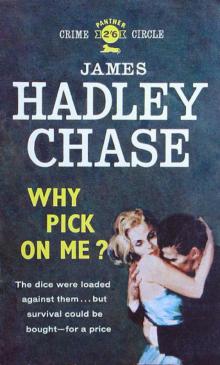 Why Pick On ME?
Why Pick On ME?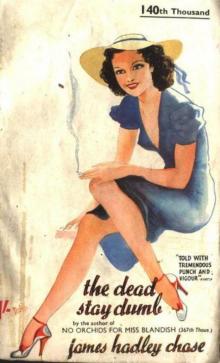 The Dead Stay Dumb
The Dead Stay Dumb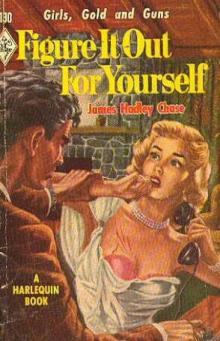 Figure it Out For Yourself
Figure it Out For Yourself 1944 - Just the Way It Is
1944 - Just the Way It Is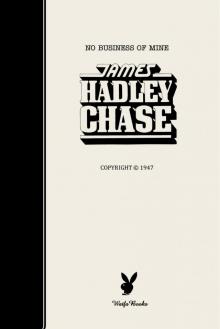 No Business Of Mine
No Business Of Mine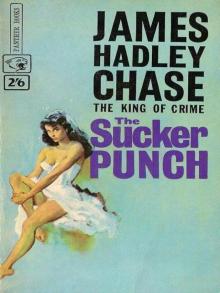 1953 - The Sucker Punch
1953 - The Sucker Punch Cade
Cade 1973 - Have a Change of Scene
1973 - Have a Change of Scene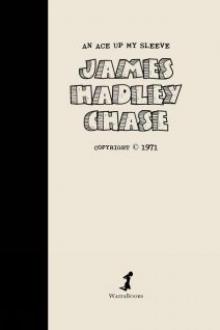 An Ace up my Sleeve
An Ace up my Sleeve 1968-An Ear to the Ground
1968-An Ear to the Ground 1950 - Figure it Out for Yourself
1950 - Figure it Out for Yourself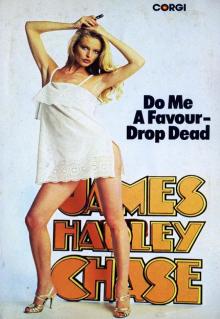 1976 - Do Me a Favour Drop Dead
1976 - Do Me a Favour Drop Dead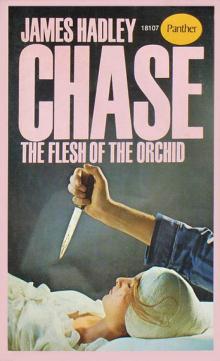 The Flesh of The Orchid
The Flesh of The Orchid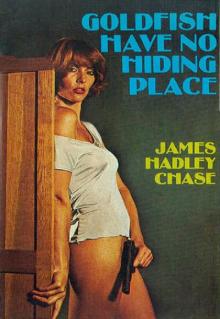 1974 - Goldfish Have No Hiding Place
1974 - Goldfish Have No Hiding Place Whiff of Money
Whiff of Money 1984 - Hit Them Where it Hurts
1984 - Hit Them Where it Hurts 1971 - Want to Stay Alive
1971 - Want to Stay Alive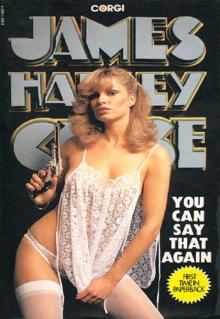 1980 - You Can Say That Again
1980 - You Can Say That Again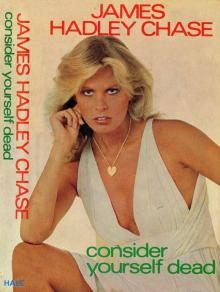 1978 - Consider Yourself Dead
1978 - Consider Yourself Dead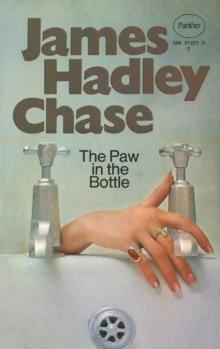 The Paw in The Bottle
The Paw in The Bottle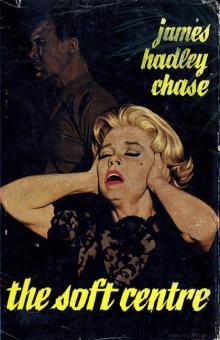 Soft Centre
Soft Centre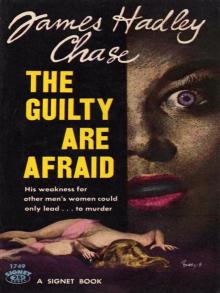 The Guilty Are Afraid
The Guilty Are Afraid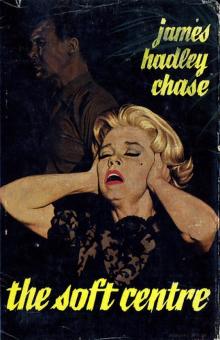 The Soft Centre
The Soft Centre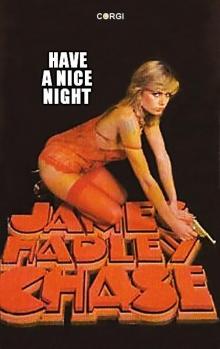 Have a Nice Night
Have a Nice Night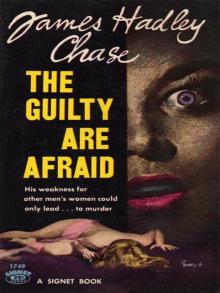 1957 - The Guilty Are Afraid
1957 - The Guilty Are Afraid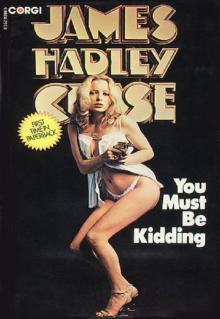 1979 - You Must Be Kidding
1979 - You Must Be Kidding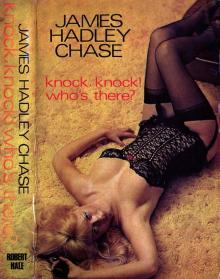 Knock, Knock! Who's There?
Knock, Knock! Who's There?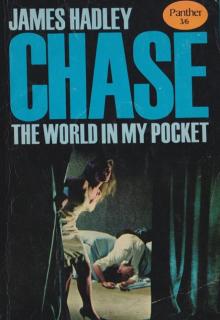 1958 - The World in My Pocket
1958 - The World in My Pocket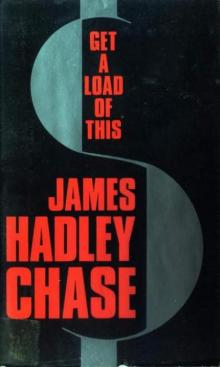 Get a Load of This
Get a Load of This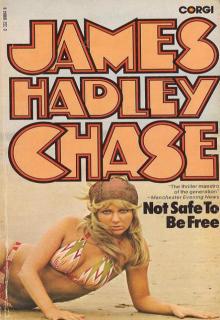 1958 - Not Safe to be Free
1958 - Not Safe to be Free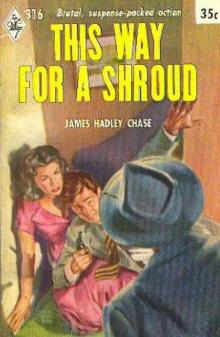 This Way for a Shroud
This Way for a Shroud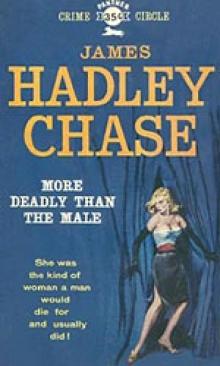 More Deadly Than the Male
More Deadly Than the Male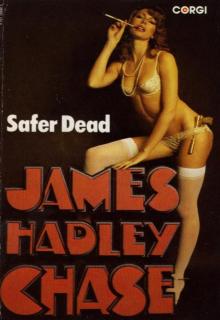 Safer Dead
Safer Dead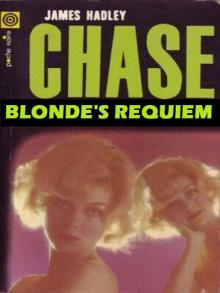 1945 - Blonde's Requiem
1945 - Blonde's Requiem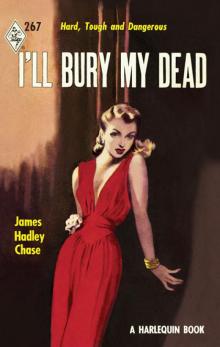 I'll Bury My Dead
I'll Bury My Dead 1975 - The Joker in the Pack
1975 - The Joker in the Pack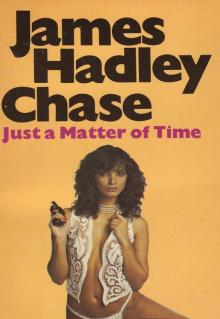 1972 - Just a Matter of Time
1972 - Just a Matter of Time 1954 - Mission to Venice
1954 - Mission to Venice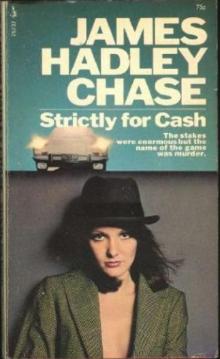 Strictly for Cash
Strictly for Cash A COFFIN FROM HONG KONG
A COFFIN FROM HONG KONG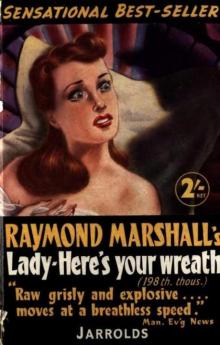 Lady—Here's Your Wreath
Lady—Here's Your Wreath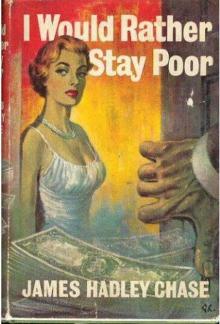 I Would Rather Stay Poor
I Would Rather Stay Poor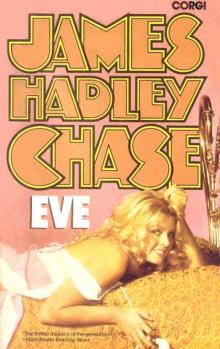 Eve
Eve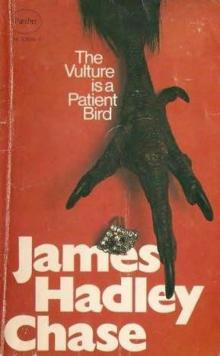 Vulture Is a Patient Bird
Vulture Is a Patient Bird 1979 - A Can of Worms
1979 - A Can of Worms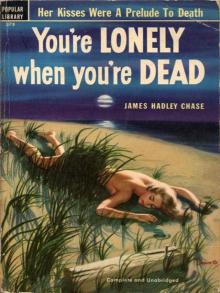 1949 - You're Lonely When You Dead
1949 - You're Lonely When You Dead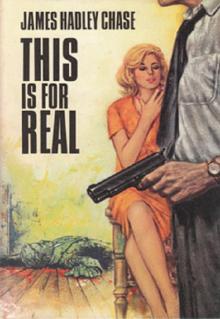 1965 - This is for Real
1965 - This is for Real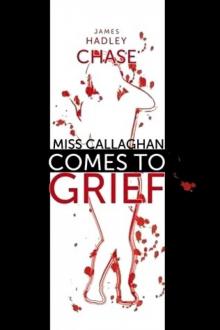 (1941) Miss Callaghan Comes To Grief
(1941) Miss Callaghan Comes To Grief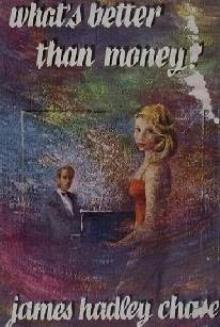 What`s Better Than Money
What`s Better Than Money This is For Real
This is For Real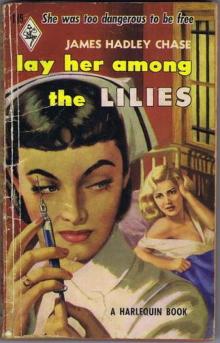 Lay Her Among the Lilies vm-2
Lay Her Among the Lilies vm-2 Knock Knock Whos There
Knock Knock Whos There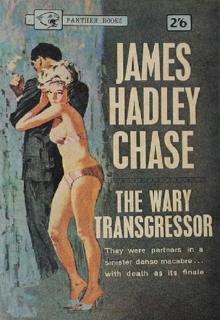 1952 - The Wary Transgressor
1952 - The Wary Transgressor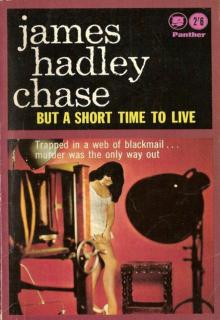 1951 - But a Short Time to Live
1951 - But a Short Time to Live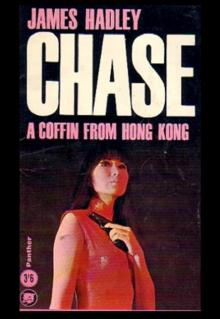 1962 - A Coffin From Hong Kong
1962 - A Coffin From Hong Kong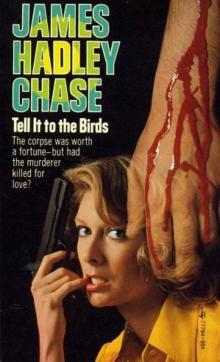 Tell It to the Birds
Tell It to the Birds Well Now, My Pretty…
Well Now, My Pretty…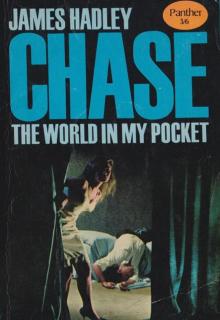 The World in My Pocket
The World in My Pocket A Lotus for Miss Quon
A Lotus for Miss Quon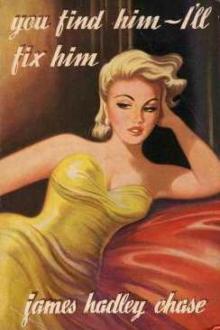 You Find Him, I'll Fix Him
You Find Him, I'll Fix Him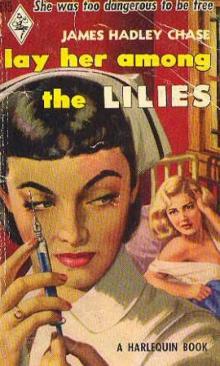 Lay Her Among The Lilies
Lay Her Among The Lilies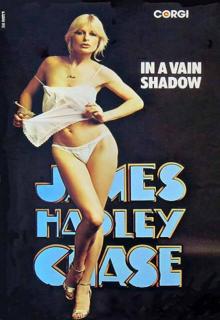 1951 - In a Vain Shadow
1951 - In a Vain Shadow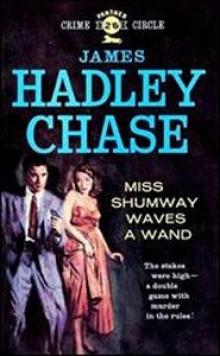 Miss Shumway Waves a Wand
Miss Shumway Waves a Wand 1953 - This Way for a Shroud
1953 - This Way for a Shroud 1964 - The Soft Centre
1964 - The Soft Centre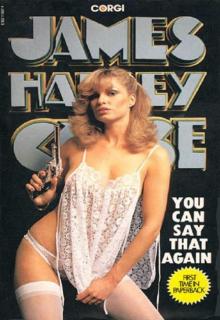 You Can Say That Again
You Can Say That Again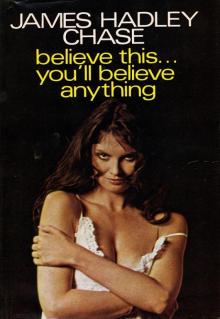 1975 - Believe This You'll Believe Anything
1975 - Believe This You'll Believe Anything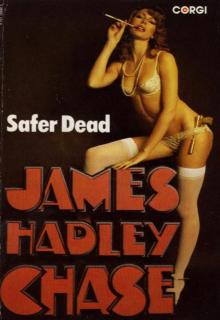 1954 - Safer Dead
1954 - Safer Dead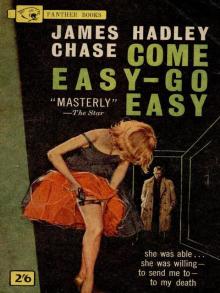 1960 - Come Easy, Go Easy
1960 - Come Easy, Go Easy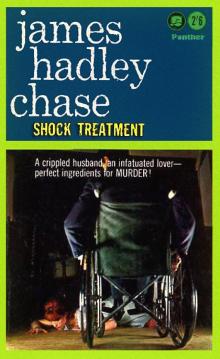 Shock Treatment
Shock Treatment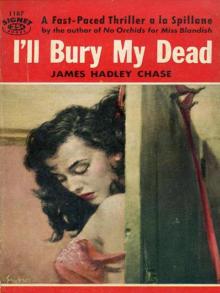 1953 - I'll Bury My Dead
1953 - I'll Bury My Dead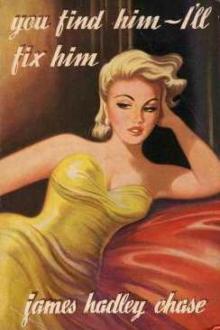 You Find Him – I'll Fix Him
You Find Him – I'll Fix Him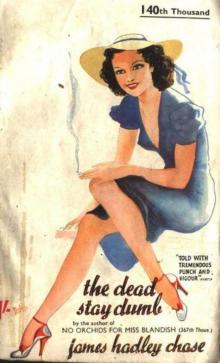 Dead Stay Dumb
Dead Stay Dumb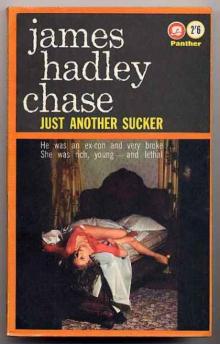 Just Another Sucker
Just Another Sucker Well Now My Pretty
Well Now My Pretty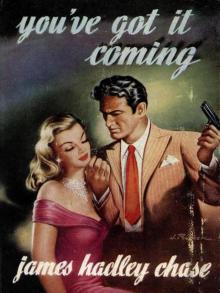 You've Got It Coming
You've Got It Coming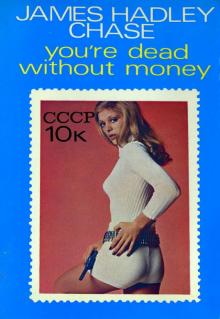 1972 - You're Dead Without Money
1972 - You're Dead Without Money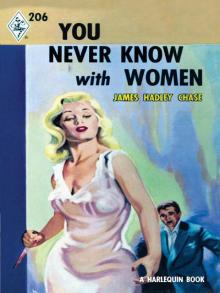 1955 - You Never Know With Women
1955 - You Never Know With Women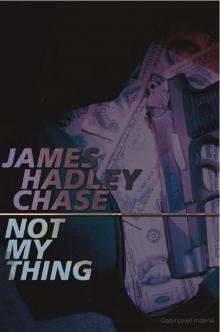 Not My Thing
Not My Thing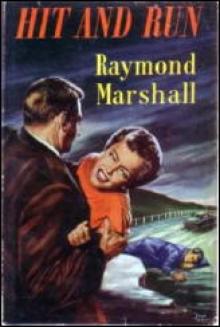 Hit and Run
Hit and Run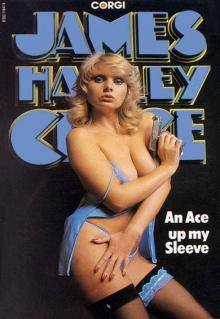 1971 - An Ace Up My Sleeve
1971 - An Ace Up My Sleeve 1970 - There's a Hippie on the Highway
1970 - There's a Hippie on the Highway 1968 - An Ear to the Ground
1968 - An Ear to the Ground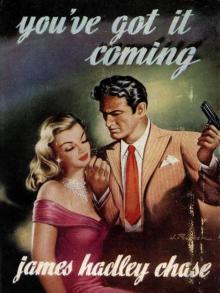 1955 - You've Got It Coming
1955 - You've Got It Coming 1963 - One Bright Summer Morning
1963 - One Bright Summer Morning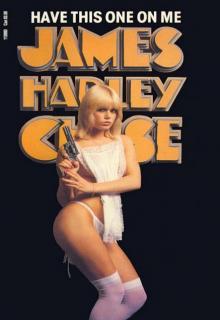 1967 - Have This One on Me
1967 - Have This One on Me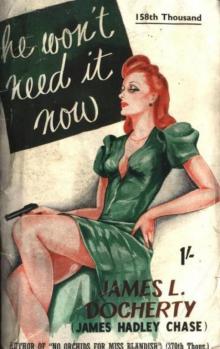 He Won't Need It Now
He Won't Need It Now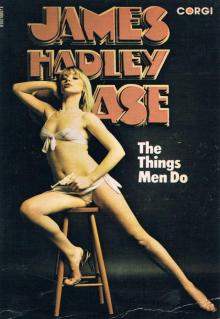 1953 - The Things Men Do
1953 - The Things Men Do Believed Violent
Believed Violent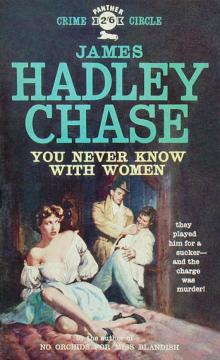 You Never Know With Women
You Never Know With Women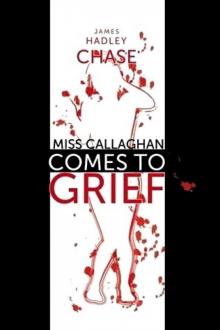 Miss Callaghan Comes to Grief
Miss Callaghan Comes to Grief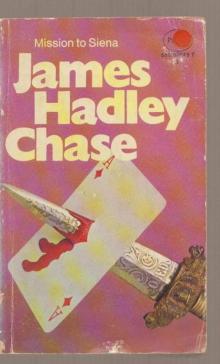 Mission to Siena
Mission to Siena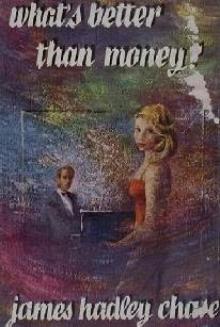 What's Better Than Money
What's Better Than Money Trusted Like The Fox
Trusted Like The Fox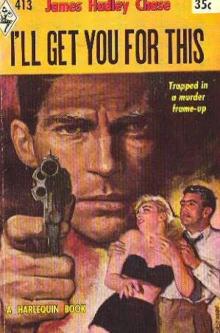 I'll Get You for This
I'll Get You for This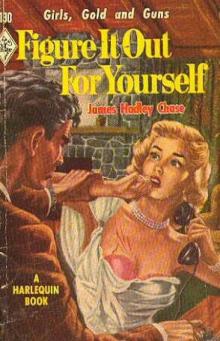 Figure It Out for Yourself vm-3
Figure It Out for Yourself vm-3 Like a Hole in the Head
Like a Hole in the Head 1977 - I Hold the Four Aces
1977 - I Hold the Four Aces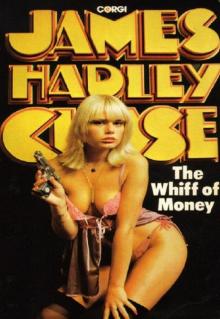 1969 - The Whiff of Money
1969 - The Whiff of Money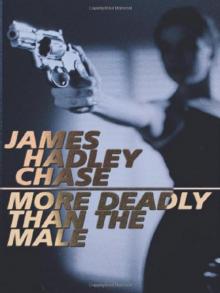 1946 - More Deadly than the Male
1946 - More Deadly than the Male 1956 - There's Always a Price Tag
1956 - There's Always a Price Tag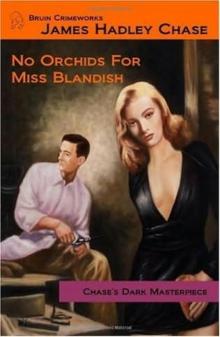 No Orchids for Miss Blandish
No Orchids for Miss Blandish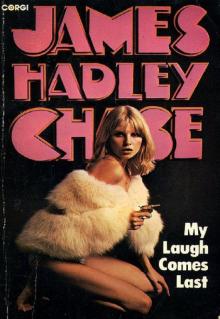 1977 - My Laugh Comes Last
1977 - My Laugh Comes Last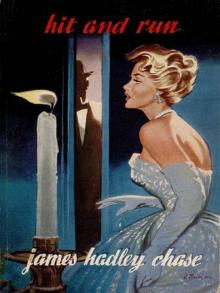 1958 - Hit and Run
1958 - Hit and Run 1981 - Hand Me a Fig Leaf
1981 - Hand Me a Fig Leaf 1966 - You Have Yourself a Deal
1966 - You Have Yourself a Deal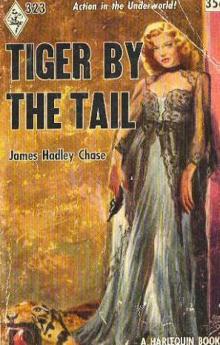 Tiger by the Tail
Tiger by the Tail